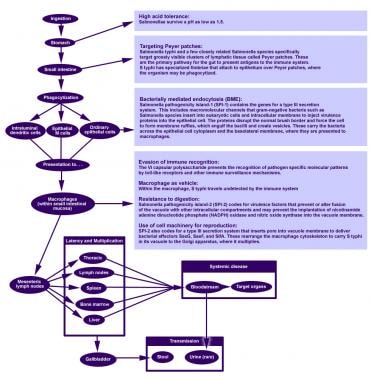Your kidneys also help control blood pressure and make. CKD regardless of its underlying etiology is defined as either kidney damage or decreased kidney function for 3 months.
 The Role Of Glomerular Epithelial Injury In Kidney Function Decline In Patients With Diabetic Kidney Disease In The Trident Cohort Kidney International Reports
The Role Of Glomerular Epithelial Injury In Kidney Function Decline In Patients With Diabetic Kidney Disease In The Trident Cohort Kidney International Reports
When this happens abnormal amounts of protein from the blood can leave your body in your urine.

Diabetes and kidney function. Less is known about how long it takes kidney disease to develop in type 2 diabetes. When it comes to kidney function it is particularly important to be vigilant in closely monitoring and managing any complications. With CKD kidneys are unable to filter waste as well as they should.
About 30 to 40 of people with type 1 diabetes will develop more serious kidney disease usually between 10 and 30 years after their diagnosis. When the blood vessels in the kidneys are injured your kidneys cannot clean your blood properly. CKD is defined as abnormalities of kidney structure or function present for greater than three months with implications for health2 Diabetic nephropathy describes several disease pro-cesses caused by diabetes and hyperglycaemia which result in structural and functional abnormalities of the kidney.
Kidney disease in people with diabetes is caused by multiple factors including diabetic changes in the kidneys as well as vascular changes due to hypertension. People with diabetes have high glycemia or blood glucose which can damage the kidneys and lead to kidney disease. Furthermore diabetes mellitus is a main risk factor for end-stage renal disease ESRD the most advanced stage of kidney disease.
This can cause them to leak and not work as well. Diabetes is the leading cause of kidney disease. High levels of blood sugar can damage the kidneys and cause them to fail thus eliminating.
In addition the raised blood glucose level may cause some proteins in the glomeruli to link together. High blood sugar levels can damage blood vessels in your kidneys as well as in your eyes. The National Kidney Foundation estimates up to 40 of people with Type 2 diabetes eventually will develop kidney failure.
Blood loss and protein loss in the urine can also signal kidney insufficiency or failure. For people with greatly reduced kidney function a diet containing reduced amounts of protein may help delay the onset of kidney failure. Other causes of kidney damage are related to several factors including changes in blood circulation within the kidneys.
High blood glucose sugar levels can damage the small blood vessels and tiny filters in your kidneys. Also known as diabetic nephropathy or diabetic kidney disease DKD this condition is a result of vascular abnormalities that accompany diabetes and increases mortality risk. These chemicals tend to make the glomeruli more leaky which then allows albumin to leak into the urine.
Excess phosphate and calcium can build up and settle in the eyes causing them to become dry and irritated. High blood pressure can also do this too. High blood pressure hypertension is a known risk factor for kidney disease and people with diabetes are prone to hypertension.
Diabetic kidney disease affects between 15-30 of patients with type 1 diabetes and about 30-40 of patients with type 2 diabetes. Diabetes is often associated with chronic kidney disease CKD. The kidneys are remarkable organs of the human body that are responsible for many essential regulatory roles including filtering the blood to keep it clean and chemically balanced.
Diabetes may damage blood vessels in the kidneys causing kidney damage as well as a decrease in kidney function which can lead to a buildup of waste products in your blood. Other risk factors include cigarette smoking and family history. The renin-angiotensin system which helps regulate blood pressure is also thought to be involved in the development of diabetic nephropathy.
In chronic kidney failure with diabetes there is a decrease in urine or an absence of urine or an increase in the level of waste products in the blood as indicated by increased creatinine or urea levels in the bloodstream. Chronic Kidney Disease CKD Basics. Diabetes however can cause this vital filtering system to break down.
For nearly half of patients who receive dialysis therapy. Adults with diagnosed diabetes also have chronic kidney disease. About 1 out of 3 adults with diabetes has kidney disease.
Your body will retain more water and salt than it should which can result in weight gain and. With diabetes the small blood vessels in the body are injured. The National Kidney Foundation reports that diabetes is the primary cause of kidney.
A raised blood sugar glucose level that occurs in people with diabetes can cause a rise in the level of some chemicals within the kidney. And kidney disease has no symptoms until it is almost end-stage According to the CDC an estimated 37 of US. Experts recommend that people with kidney disease of diabetes consume the recommended dietary allowance for protein but avoid high-protein diets.
1 The main job of the kidneys is to filter wastes and extra water out of your blood to make urine. Most people with type 1 diabetes develop changes in kidney function within three to five years of their diagnosis.





:max_bytes(150000):strip_icc()/lupus-and-ms-whats-the-difference-2249979-v2-5c45534dc9e77c000163bb17.png)




